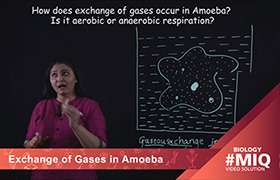CBSE Class 10 Answered
Altitude sickness is a general term encompassing a spectrum of disorders that occur at higher altitudes. These include dizziness, headache, shortness of breath, nausea, vomiting, loss of appetite, insomnia etc. Altitude sickness occurs because the partial pressure of oxygen decreases with altitude. For instance, at 18,000 feet, the partial pressure of oxygen drops to one-half its value at sea level and, therefore, there is a substantially lower amount of oxygen available for the individual to inhale and sustain mental and physical alertness. This is known as hypoxia. Furthermore, since there is less oxygen to inhale, less oxygen reaches the blood. This is known as hypoxemia. These two conditions are the major factors that form the basis for all the medical problems associated with altitude sickness.











